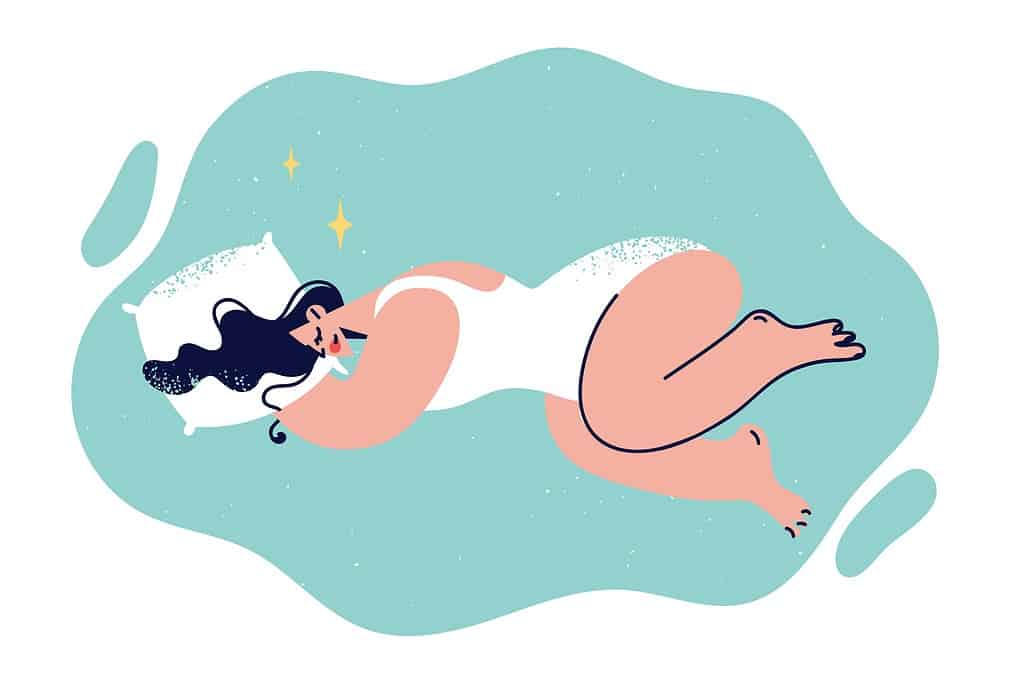The Best Diet for Better Sleep

GMD
You probably already know that how you eat affects your sleep. Maybe you’ve found yourself still lying awake at 2 a.m. after enjoying a cup of coffee with dessert. But did you know that your eating choices throughout the day may also impact your sleep at night?

In fact, more and more evidence shows that overall dietary patterns can influence sleep quality and contribute to insomnia.
Many people in the U.S. have trouble sleeping and suffer from sleep disorders like insomnia and sleep apnea, which is when breathing is blocked during sleep.
Most Americans eat too much fatty and processed food, but not enough fiber, fruits, and vegetables.
It’s hard to say for sure, but research suggests that there could be a connection between sleep and diet.
How diet and sleep quality can be intertwined
My colleagues and I wanted to understand the connection between sleep and diet in Americans aged 18 and older. So we analyzed whether people who follow the government’s Dietary Guidelines for Americans get more hours of sleep.
We analyzed a dataset of surveys collected from 2011 to 2016 and discovered that individuals who did not follow dietary recommendations had less sleep.
We studied over 1,000 young adults, aged 21 to 30, who took part in a web-based diet study to see if it helped them eat more fruits and vegetables.
Increasing fruit and vegetable intake for three months improved sleep quality and reduced symptoms of insomnia.
Healthier diets are linked to improved sleep quality and reduced symptoms of insomnia, according to research conducted by my group and other studies.
There are different healthy diets like the Mediterranean diet and anti-inflammatory diets. They focus on plant foods, olive oil, seafood, and less red meat and added sugar.
These diets are like the Mediterranean diet but put more focus on specific components like flavonoids, which are plant compounds that can reduce inflammation in the body.
Parsing the foods and nutrients
Certain foods and nutrients are associated with sleep quality in healthy diets, although the evidence varies.
For example, studies have linked consumption of fatty fish, dairy, kiwi fruit, tart cherries and other berries such as strawberries and blueberries with better sleep.
One of the common pathways through which these foods may affect sleep is by providing melatonin, an important modulator of sleep and wake cycles in the brain.
Fiber-rich foods like beans and oatmeal and certain protein sources – especially those that are high in the amino acid tryptophan, such as poultry – are also associated with higher-quality sleep.
Individual nutrients that may be beneficial to include magnesium, vitamin D, iron, omega-3 fatty acids and manganese. Some foods like salmon are sources of multiple nutrients.
Untangling the complexity
Many research studies cannot determine the cause and effect relationship between individual foods and diet patterns.
In other words, it’s hard to know whether the association is a result of diet altering sleep, or sleep affecting diet. Eating well helps you sleep better, and good sleep encourages healthy eating habits.
In observational studies, there are factors like age and economic status that could affect both sleep and diet.
Foods to avoid for sleep health
Aiming for higher intake of sleep-promoting foods isn’t necessarily enough to get better sleep. It’s also essential to avoid certain foods that could be bad for sleep. Here are some of the main culprits:
___
✔️ Saturated fats in burgers, fries, and processed foods may reduce restorative slow-wave sleep.
✔️ Refined carbohydrates, such as those in white bread and pasta, are metabolized quickly. If you eat these foods for dinner, they can result in waking up from hunger.
✔️ Alcohol disrupts sleep quality. Alcohol can make it easier to fall asleep at first, but it disrupts sleep patterns by reducing REM sleep in the early part of the night and causing more awakenings.
✔️ Drinking caffeine up to six hours before bedtime can hinder falling asleep by blocking the hormone adenosine, which helps promote sleep.
___
The consistent overconsumption of calories can lead to weight gain, one of the strongest predictors of obstructive sleep apnea.
Excess weight adds pressure to the diaphragm and lungs, and can narrow the airway if fat collects around the neck and throat.
Interestingly, our group has recently shown that toxicants in food or food packaging, like pesticides, mercury and phthalates – chemicals used to manufacture plastics – can affect sleep.
Since toxicants can be found in both healthy and unhealthy foods, this research suggests that some foods can contain a mix of components that are both beneficial and harmful for sleep.
Timing of meals and gender considerations
Eating at regular times, known as “chrononutrition” in sleep research, likely helps to explain the link between healthy diets and good sleep.
In the U.S., eating at conventional meal times as opposed to random snacking has been associated with better sleep. Late-night eating is often linked to eating unhealthy food, like processed snacks, and can lead to disrupted sleep.
A final and very interesting piece of this puzzle is that associations between diet and sleep often differ by gender. For example, it appears that the associations between healthy diet patterns and insomnia symptoms could be stronger among women.
One reason for this could be gender differences in sleep. In particular, women are more likely than men to suffer from insomnia.
__________
🟡 🔴 🔵 REMEMBER
__________
Keys to a good night’s sleep
Overall, there is not one magic food or drink that will improve your sleep. It’s better to focus on overall healthy dietary patterns throughout the day, with a higher proportion of calories consumed earlier in the day.
And, in addition to avoiding caffeine, alcohol and heavy meals in the two to three hours before bed, the last few hours of the day should include other good sleep hygiene practices.
These include disengaging from technology, reducing light exposure and creating a comfortable and relaxing environment for sleep. Moreover, allowing enough time to sleep and maintaining a consistent bedtime and wake time is essential.
__________
Assistant Professor of Nutritional Sciences
University of Michigan
theconversation/ us/ health
__________
